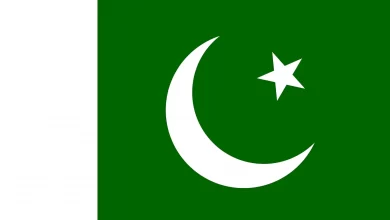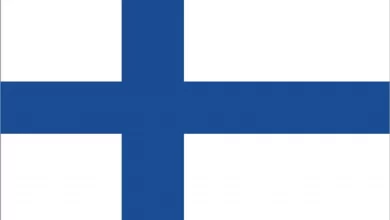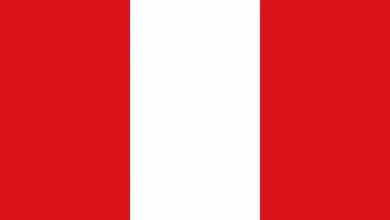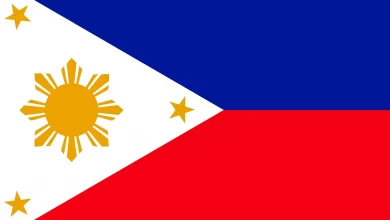Brazil is one of the most captivating places on the planet earth, with powdery verdant rainforests, and wild, white sand beaches, and rhythm-filled metropolises. Brazil’s has a range of tourist attractions like landscapes of red-rock canyons, thundering waterfalls, and coral-fringed tropical islands. Then there’s its diverse ecosystems that contain the most plant and animal species found anywhere on the planet. There are numerous locations in Brazil where you can see iconic species such as toucans, howler monkeys, capybaras, pink dolphins, sea turtles, scarlet macaws, and thousands of other living species. So here are 58 Mind-blowing facts about this wonderful country.
- Brazil is named after a tree called as brazilwood tree. Brazil’s official name is Republica federative do brasil, which is also known as Federative republic of brazil.
- The country is considered to be the second place to the Japanese. The first Japanese immigrants arrived in the country in 1908, and it is believed that approximately 1.5 million people of Japanese ethnicity live in Brazil.
- Brazil is the biggest exporter of sugar on the entire planet. In 2018-2019 the country exported 19.6 million metric tons of sugar to the other countries.
- The country also holds the tag of the biggest exporter of soybean on the planet.
- Due to the Amazon rain-forest, the country has the widest variety of flora and fauna on the planet earth. It has about 55000 types of plants, 3000 types of fishes, and over 689 species of mammals.

Toucan bird Of Brazil - Brazil is the 22nd biggest export economy and 37th most complex economy in the world.
- Brazil exports the most commodities to China ($90.1B), the United States ($36.6B), Argentina ($15.4B), the Netherlands ($11.8B), Spain ($9.78B), and crude petroleum ($43.1B), iron ore ($30.1B), refined petroleum ($12.9B), and soybeans ($47.2B).
- Brazil’s top imports are mostly from China ($64B), the United States ($49.4B), Germany ($13.5B), Argentina ($12.6B), and India ($9.78B). Refined petroleum ($23B), crude petroleum ($8.78B), motor vehicles; parts and accessories (8701 to 8705) ($7.96B), potassic fertilizers ($7.59B), and mixed mineral or chemical fertilizers ($7.44B) are the top imports.
- Brazil’s official birthday as a country occurred on September 7, 1822, when Prince Pedro refused to return to Portugal. He announced the Grito de Ipiranga by throwing down his sword and shouting, “Independence or death!” Although free of Portugal’s hold, Brazil remained a monarchy until its declaration of independence as a republic in 1889.
- Brazil’s coastline has the 16th biggest coastline in the world, stretching over 7941 km (4,655 miles).

One of the Brazil’s Coastline - Football is the national sport of Brazil and is widely played in the country.
- Brazil is among the 77 countries that founded the united nations.
- The modern-day Brazilian flag green color represents the forest, the yellow rhombus reflects its mineral wealth, while the blue circle and stars on the flag depict the sky over Rio de Janeiro.
- The flag is imprinted with a saying on it, “Ordem e Progresso” which means “order and progress.”
- The country is the biggest producer of coffee in the world. In 2016 it produced about 2,595,000 metric tons of coffee.

Fernando Rebêlo via Wikimedia Commons (Coffee Fruit) - The country declared itself a republic on November 15, 1889.
- On October 30, 2010, Dilma Rousseff became the first woman to be elected as president of the country.
- The cowboys in Brazil are called “gaucho.” The term gaucho refers to the traditional cowboys from south America. This term is also used in Argentina and Uruguay.
- Brazil is the biggest country in the South American continent.
- The main attraction of Rio de Janeiro’s Carnival, which is Brazil’s world-famous pre-Lenten celebration and world largest carnival, is the main Samba School Parade.

Rio de Janeiro Carnival - The half amazon river lies within Brazil. It is the world’s largest river by volume. It is about 6400 km (3877 miles) long, and during the rainy season, it can become over 190 Km(118 miles) wide. Amazon river is also the second-longest river, just after the Nile River.
- Francisco de Orellana was a 16th-century explorer, who became the first European to travel the entire Amazon river.
- The largest catholic population lives in Brazil, with over 73.6 % of the total population.
- Silva is the most common surname in the country. About 10.5 % of the total population has this surname.
- The Brazilian national dish is feijoada, a black bean stew with dried, salted, and smoked meat.

Brazil National dish Feijoada - Pico da Neblina is the highest mountain in the country. It lies on the border of Venezuela and stands at 9,823 feet(2,994 meters).
- The evidences of the earliest pottery are found in the western hemisphere is backed at about 8000 years old in the amazon basin of the country.
- It was April 22, 1500, when Pedro Alvares Cabral, a Portuguese nobleman, landed on the coast of Brazil and claimed it for the Portuguese empire. He was sailing for India when he landed in brazil.
- Brazil has four timezones Fernando de Noronha Standard Time, Brasilia standard time, amazon standard time, and acre standard time.
- The statue of Jesus Christ in Rio de Janeiro is 38 meters in height and weighs over 635 tonnes. It was constructed between 1922 and 1931. It was included in the seven wonders list in 2007.

Jesus Christ Statue- Rio - Bandeirantes were roving groups of hardy slave traders and adventurers who journeyed inland to the city of Minas Gerais to help fuel the Brazilian Gold Rush in the 17th century.
- Brazil’s grand Seca was the biggest drought in the country’s history. It took place from 1877-1879 it caused approximately 500,000 deaths.
- Brazil has 21 Unesco heritage sites, among which the Iguacu National Park is one of the best.
- On December 25, 1988, in the state of Acre on the southwestern border of the Amazon, a Brazilian rubber-tapper named Chico Mendes became the world’s first eco-martyr. He was assassinated for trying to preserve the Amazon rainforest and advocating for the rights of Brazilian peasants and indigenous peoples.
- Brasilia, the capital of Brazil, was built in just 41 months (1956 to 1960).

Brasilia square- Brazil Capital - In the 1980s, Brazil became the first South American country to accept women into its armed forces.
- Brazil stands at the second spot to have the most airports on the planet. It has about 4,093 airports just after the united states.
- The signature song of Brazilian bossa nova is “The Girl from Ipanema.” The woman who inspired the song is Heloísa Pinheiro
- The first official tourists arrived in Brazil on January 1, 1502, as a part of a Portuguese exploratory voyage led by André Gonçalves, who named the Bay where they landed Ria de Janeiro (Bay of January). The Bay itself was later renamed Guanabara, and Rio de Janeiro became the main city on the Bay.
- The national bird of the country is the Rufous-bellied thrush which is a songbird of the thrush family.

National Bird Of Brazil – Rufous bellied thrush - Brasilia is currently the capital of Brazil and is Brazil’s third capital city since independence. Formally dedicated on April 21, 1960, Brasilia is a preplanned city and was designated in 1987 by UNESCO as a “Historic and Cultural Patrimony of Humanity.’
- The Inconfidência Mineira (1788-1789) was a failed conspiracy to end the Brazilian monarchy and establish a republic that led to the execution of its leader, Tiradentes.
- Jogo do Bicho, a popular Brazilian numbers game based on animal characters, is reckoned to have a turnover of $10 million (U.S.) per week and employs as many as 50,000 people.
- The Ilha do Bananal (Island of the Banana Grove) in the Amazon River is the world’s largest freshwater island at 200 miles long and 35 miles wide at its broadest point.
- There is a national drink of brazil which is known as cachaca. It is a sugarcane liquor mixed inside a glass with sugar, crushed lime slices, and ice.

National Bird Of Brazil – Rufous bellied thrush - The national tree of brazil is Paubrasilia which is a flowering tree.
- Brazil’s first printing establishment using the printing press, the Impressão Régia of Rio de Janeiro, was set up in 1808.
- Soccer, or futebol, was brought to São Paolo by a young Brazilian-born Englishman named Charles Miller around the turn of the 20th century.
- A group grandly named Congresso das Sumidades (Congress of Worthies) organized Brazil’s first Carnival parade in 1855.
- According to TripAdvisor, Baia do Sancho, located in Fernando de Noronha, Brazil, is the best beach on the planet.

Augusto Fagner Gomes de Lima via Wikimedia Commons (Baía do sancho Beach) - Brazil’s first Samba school, Deixa Falar (Let them Talk), was organized by the black residents of Rio de Janeiro’s Estácio District in 1928.
- Modern Samba music, a famous Brazilian style of music, dates from the 19th century when the crude tones of the slaves met with the stylized European sound of Rio de Janeiro and derive from the Angolese word sembe.
- There is a bar in niterio, brazil, around 25 kilometers north of Rio de Janeiro, which is named after Osama bin laden (bardo bin laden) and is run by Osama lookalike.
- A 1998 study in Zona Latina (1999) indicated that 73% of Brazil’s TV audience watched telenovelas, far more than any other telenovela-producing nation, including Colombia, Venezuela, and Mexico.
- The Iguazu Falls lies on the border of Brazil and Argentina. It is a UNESCO World Heritage Site and is one of the most renowned places.
They are thought to have the world’s largest volume of water, with a total of 275 falls.
Alex98 via Wikimedia Commons (Iguazu Falls Salto Rivadavia) - Among Brazil’s best-selling books in the 1960s was a diary written by Carolina Maria de Jesus called Quarto de Despejo (English publication title: Child of the Dark). It describes her life as a single mother in a rugged São Paolo favela (slum or shanty town).
- The founder of ford motors henry ford set up a rubber plant in the amazon rainforest for its company rubber needs in 1920.
- Maria is the most common female name, with around 11.7 million females have this name. While Jose is the common name among males and around 5.7 million Brazilian men have this name.
Quick Facts about Brazil
- CAPITAL CITY: Brasília
- POPULATION: 215.3 million (2022)
- POPULATION RANK: 7th
- LARGEST CITY:São Paulo
- OFFICIAL LANGUAGES: Portuguese
- GDP NOMINAL: 1.92 trillion USD (2022)
- GDP RANK: 8th
- CURRENCY: Brazilian real (R$)(BRL)
- FOUNDED: 7 September 1822
- FATHER OF THE NATION: Dom Pedro I
- TOTAL AREA: 8.516 million km2
- AREA RANK: 5th worldwide
- CONTINENT: South America
- AVERAGE LIFE EXPECTANCY: 72.75 years (2021)
- ARMY STRENGTH: 334,000
- ARMY RANK: 12th
- LITERACY RATE: 92.05%
- PER CAPITA INCOME: 17,270 PPP dollars (2022)






